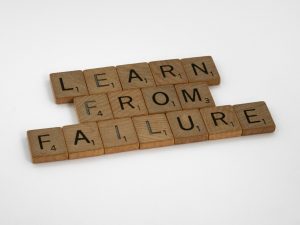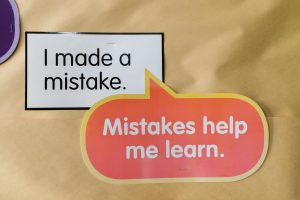In our journey towards self-improvement, we often overlook a powerful catalyst for change: our mistakes. As a therapist, I've observed how our instinctive reactions to failure can hinder our personal growth. Today, let's explore a potentially transformative perspective on errors, mistakes and setbacks.
The Mindset Dilemma
Our response to challenges, feedback, effort and mistakes reveals our underlying mindset. Some view these experiences as threats, while others see opportunities for growth (fixed vs. growth mindset, anyone?). This distinction is crucial in determining how we navigate life's inevitable stumbling blocks.
Unlearning Automatic Responses
Our brains, evolved for survival, often default to self-preservation modes when faced with failure. This can manifest as:
- Defensive reactions (criticising others, devaluing tasks)
- Avoidance behaviours (disengaging, ignoring feedback)
To break free from these patterns, we must first recognise them. Awareness is the first step towards change.

Strategies for Transforming Failure into Growth
- Conscious Engagement: Use setbacks as wake-up calls. When mistakes jolt us out of our automatic thought, feeling and behavioural patterns, we're more receptive to learning.
- Balanced Self-Reflection: While it's easy to dwell on shortcomings, remember to acknowledge your strengths. Embrace your unique blend of abilities and areas for improvement.
- Strategic Focus: Instead of spreading yourself thin, prioritise what truly matters. Quality often trumps quantity in personal development.
- Open Dialogue: Sharing your experiences with failure can be both cathartic and instructive. It fosters connection and normalises the struggle we all face.
- Long-Term Perspective: Remember, temporary setbacks often pave the way for lasting success. Keep your ultimate goals in sight.
- Emotional Acceptance: Allow yourself to feel disappointment. Suppressing emotions hinders the processing and learning that naturally follows failure.
- Objective Analysis: Try viewing your situation from an outsider's perspective. This distance can provide clarity and reduce emotional turmoil.
- Learn Vicariously: Observe how others handle setbacks. This can offer new strategies without the personal sting of failure.
- Reflective Practice: In our fast-paced world, carve out time for thoughtful reflection. This is where true insight and growth occur.
- Self-Compassion: Treat yourself with the kindness you'd offer a friend. Harsh self-criticism rarely leads to sustainable improvement.
The Path Forward
 Remember, failure is inevitable; it’s in choosing how we respond to it that has the potential to make it instrumental to our growth. By reframing our relationship with mistakes, we open ourselves to richer learning experiences and more authentic self-development.
Remember, failure is inevitable; it’s in choosing how we respond to it that has the potential to make it instrumental to our growth. By reframing our relationship with mistakes, we open ourselves to richer learning experiences and more authentic self-development.
In therapy, we often work on cultivating this growth-oriented mindset. It's a journey of unlearning ingrained habits and embracing a more adaptive, compassionate approach to personal challenges.
As you navigate your own path, consider how you might transform your next setback into a stepping stone. The road to self-improvement is rarely smooth, but with the right perspective, every bump can propel you forward.

